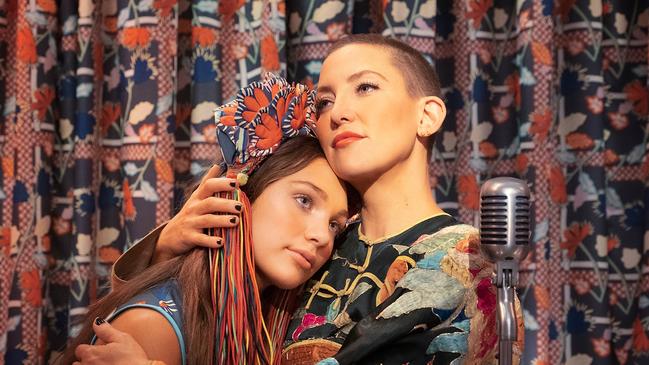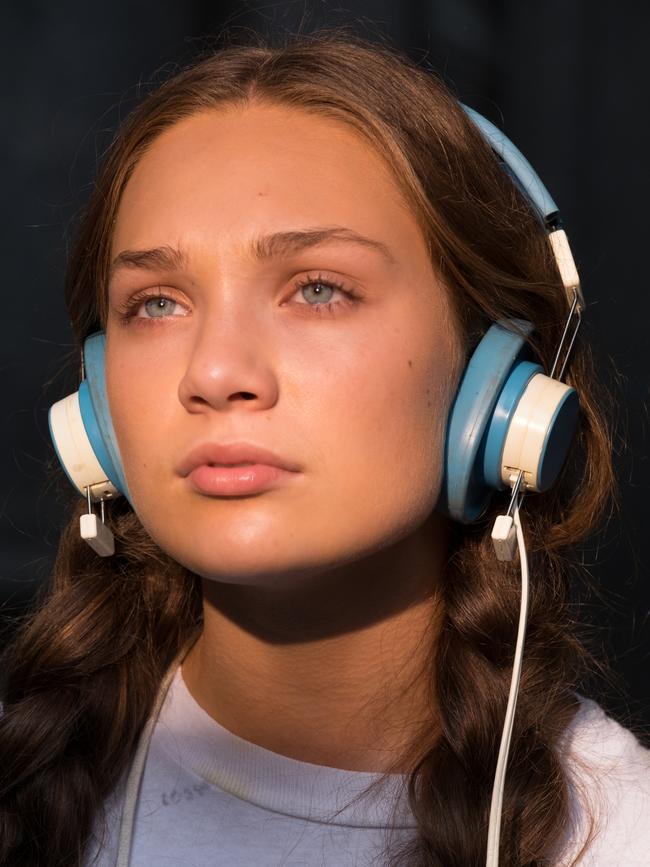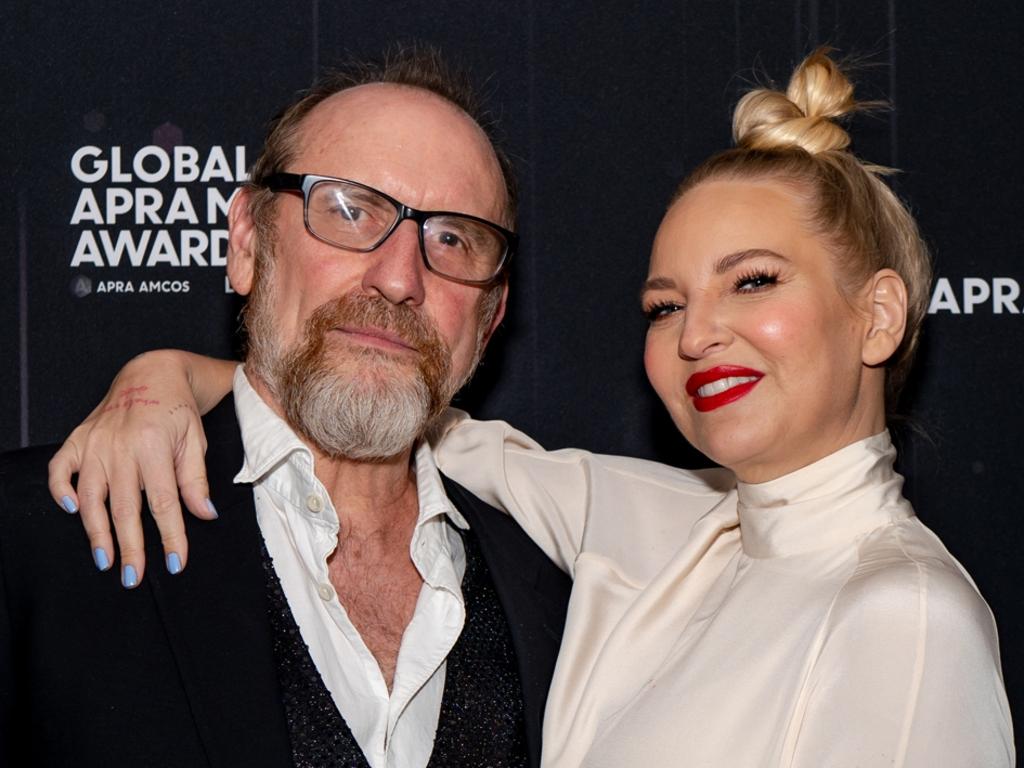Sia Furler’s film debut Music stuns with complex portrait of autism
Furore aside, Sia’s film is a thoughtful portrait of autism in all its inward splendour and outward challenges.

As the title character in Music, the debut film by Australian singer-songwriter Sia Furler, Maddie Ziegler does something incredible: she is utterly convincing as something she is not. Ziegler is not autistic, but she plays a character whose autism is so profound that she is almost entirely non-verbal.
Furler’s 2016 album was named This Is Acting, a reference to how she characterises writing songs for other singers as a form of play-acting. Ziegler’s first performance as the lead in a feature film is moving, singular and perfectly pitched. This, then, is acting par excellence.
Above all else, Music is a portrait of autism in all its inward splendour and outward challenges, seen from the perspectives of both the protagonist and those around her. Raised by her grandmother following the premature death of her mother — said to be an addict, whom we never meet; dad goes unmentioned entirely — the film opens with scenes showing how every day of the title character’s life is governed by the iron-clad routines to which her unique mind is bound.
Rather than fight against her need for absolute order and predictability, her resourceful grandmother has enlisted a small army of neighbours to enable Music to fulfil her daily walk from their apartment to a nearby library, where she always studies the same book about dogs. Along the way she is handed the same treat of a cold watermelon slice on a stick, as well as pictures of dogs cut from magazines supplied by the local newsagent. Then she heads home.
This predictable routine is shattered in the opening minutes, when the sudden death of her grandmother forces Music’s wayward half-sister Kazu (Kate Hudson) to return home as the sole remaining guardian in her life. Roughly twice her age, Kazu is enmeshed in issues with alcohol, drugs and the law; she is clearly self-centred and barely capable of caring for herself, let alone a demanding teenager with special needs.
Their strained dynamic forms the film’s central tension, while a kind neighbour named Ebo (Leslie Odom Jr) has problems of his own, and is reluctant to become invested in the sisters’ dilemma despite knowing all of Music’s tics and peculiarities, including how to calm her when she starts hurting herself after encountering an unexpected change in routine.

Even knowing that Ziegler would be playing the role of an autistic character — a casting decision that has caused Furler no small amount of grief in the lead-up to its release — within a minute or two of encountering her on screen, the actor dissolves and is replaced entirely by Music, the girl whose presence occupies much of the film, almost always wearing headphones that filter out the too-loud world around her.
But for a handful of short phrases that she repeats like clockwork at breakfast and bedtime, Music is locked inside her mind and seemingly unable to communicate. This makes Ziegler’s work all the more impressive, for in lieu of scripted lines, her body and face must carry all that dramatic weight.
Given her background as a performer, though, it is a role she was built for. Ziegler is now 18, but was 14 when Music was filmed in mid-2017. She has spent much of her childhood in the public eye, first as a dancer on the reality TV series Dance Moms, where Furler first laid eyes on the 11-year-old before they became long-time collaborators across many of the singer’s music videos, most notably the 2014 global hit Chandelier and the likes of Electric Heart, Cheap Thrills and The Greatest, among others, as well as performing at Sia’s concerts.
In those videos, whose collective YouTube views extend into the billions, Ziegler has proved time and again that she is an artist of extraordinary expression and interpretation, yet the role of Music has to be by far the biggest screen challenge she has undertaken. When the film’s trailer was released in November, though, Furler began copping criticism from disability activists for casting Ziegler in the lead role, rather than a person with autism.
“I actually tried working with a beautiful young girl non-verbal on the spectrum and she found it unpleasant and stressful. So that’s why I cast Maddie,” she wrote in response on Twitter. Later, Furler wrote, “Casting someone at (the character’s) level of functioning was cruel, not kind, so I made the executive decision that we would do our best to lovingly represent the community … I did try. It felt more compassionate to use Maddie. That was my call.”
All of the criticism laid at Furler’s feet to date has come from those who have viewed only the minute-long trailer, rather than the film itself, a fact not lost on Furler while in the midst of her Twitter debate. “Grrrrrrrrrr,” she wrote at one point. “F..kity f..k why don’t you watch my film before you judge it? FURY.”
What Ziegler does across 107 minutes on screen is one of the most moving, magnetic and complete performances in recent memory. Plainly, casting her as Music was the right call. While some of the concerns about casting a non-autistic person in the role are valid, cinema is built on the craft of pretending, and her work here announces Ziegler as a major force as an actor.
This casting spat calls to mind another memorable film debut: Edward Norton in 1996’s Primal Fear, where he played a stuttering altar boy diagnosed with dissociative identity disorder as a result of years of physical and sexual abuse at the hands of an archbishop.
None of those facts were true of Norton’s life — this is acting, remember — yet none of that detracted from the power, precision and impact of his work, for which he was nominated for a best supporting actor Academy Award. In time, Ziegler will be similarly lauded for this unforgettable portrayal.
The other prominent narrative thread of Music is its portrait of the ongoing struggle of sobriety, a subject in which Furler is well versed. Like Hudson’s character Zu, Furler is in recovery for alcohol addiction, and the filmmaker’s final thanks in the end credits is reserved for her fellow members of 12-step programs “who knowingly or unknowingly have saved my life, time and time again”.
As a first-time film director, Furler is gifted with extraordinary talent at which to point her lens: Ziegler, Hudson and Odom Jr are all compelling as the three leads, and ably supported by an ensemble including Hector Elizondo as elderly neighbour George and impressive newcomer Beto Calvillo as Felix, a mute boy who lives in the building across from Music.
The singer herself makes a memorable cameo midway through, with her Australian accent cutting through a film largely populated with American voices but for Odom Jr’s Ebo, who has Ghanaian heritage. Given that Furler has spent much of the last decade literally hiding behind a platinum blonde wig in almost all of her public outings, her brief appearance — as a character credited as Popstar Without Borders — is both amusing and welcome.

Behind the lens, her work is largely unobtrusive, although there is one key moment with the three leads at a piano midway through where the handheld camera appears to wobble, and I couldn’t help but wonder if that was because the director was affected by the emotion of the scene. Intentional or not, it was a nice touch.
Both book-ending and stitched throughout the narrative are highly stylised and gaudily coloured musical sequences, choreographed by Ryan Heffington and set to original songs mostly composed by Furler alongside her collaborators, including British musician and rapper Labyrinth and long-time producer Greg Kurstin. Ziegler’s character is often at the centre of these passages, and the contrast between the jerky, restless, compulsive movements of her waking life is stark.
Rather than being essential to the narrative, I found the musical aspects to be fun diversions from the main story, which remains compelling all the way through. But there were practical reasons for the heavy musical presence, too: Furler has said the budget jumped from $US4m ($5.17m) to $US16m when she agreed to pump up the music as the studio could profit from the soundtrack, which will be released February 12.
My interpretation of the interstitial musical numbers is that they offer a chance to whisk Music out of the strictures of her neurological condition, if only for a few moments, to place her inside a technicolour fantasy where she moves fluidly and gracefully, and where her favourite people in the world are wearing bright costumes and dancing right along with her.
Not that Music’s life is unhappy; quite the opposite, for even after the death of her grandmother, she remains surrounded by those who love her for who she is. But for those gentle and well-meaning nudges from friendly faces in the neighbourhood who keep a watchful eye on her, Music retains a high degree of agency. What appears to her older half-sister to be a small and almost impossibly confined life is in fact comforting and full to overflowing.
The real genius of Furler’s film is wrapped tightly around this premise: by patiently showing — rather than telling — Music’s rich life to the viewer, we come to realise that she does not want for anything. Instead, what she has is enough.
Music is screening nationally from Thursday, January 14.






To join the conversation, please log in. Don't have an account? Register
Join the conversation, you are commenting as Logout